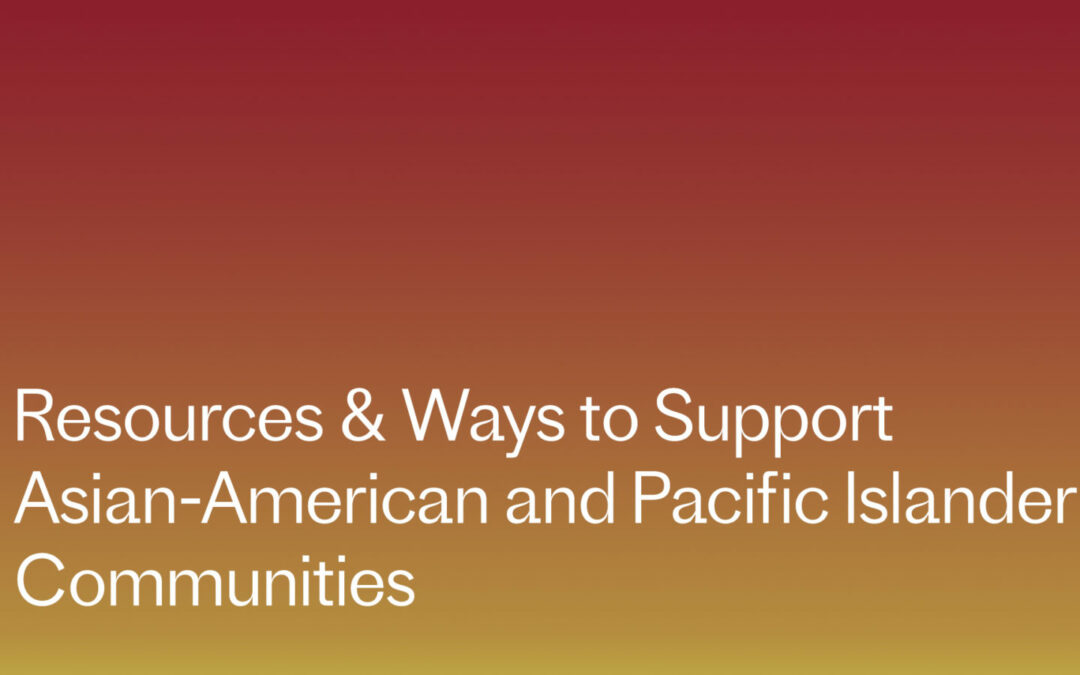This year many of us have witnessed the pain and anguish facing our Asian American sisters and brothers due to the violence and hatred directed at members of their community. There have been thousands of hate crimes this year – and those are only the ones that have been reported.
One of my Asian friends shared recently, “My eyes are swollen from crying. My friends and their children have been yelled at and called names. I fear for my elderly parents. For my daughter. For myself.”
To those of you in the AAPI community, we see you, our hearts break with you, and we want to take action to support you. You are made in the image of God and being treated as anything less is evil and inexcusable and we are so sorry.
All of us must discern how we can stand with and fight for this hurting and understandably angry part of our family. At Mill City our members have adopted a three step approach when it comes to joining in God’s work of justice in our broken world:
Repent, Lament, Act.
Repenting or confessing that we are people in need of healing from the pain we cause others and lamenting – and crying out to God in anguish for the pain we are witnessing. You can join in our prayer of repentance and lament from a recent Sunday here.
When it comes to acting, let me share a short list of actions that I heard from Christian Asian American leaders share this week.
These leaders asked the following:
- Believe us – when we say we have experienced overt racism in our own neighborhoods.
- Pause when you hear news of these incidents and choose to empathize with how we are feeling even before the details are known.
- Take steps to learn about Asian American history especially ethnic groups in your community.
- Speak up when you hear even vague anti-Asian sentiments.
- Consider tangible ways to support your AAPI friends with gift cards, meals, or other forms of service.
- Remember that anti-Asian racism, just like racism toward other racial minority groups, does not only consist of overt, blatant acts of hatred. Forms of racism toward Asian Americans that are more subtle can include (but are not limited to) viewing Asian Americans as model minorities, asking where someone is really from, commenting on someone speaking English well, or fetishization of Asian/Asian American women. While some of these acts may appear to be positive on the surface, they are grounded in racist views toward Asians/Asian Americans.
When it comes to Asian American history, you can stream a well done docuseries on PBS right now that many of my Asian friends recommend for an accurate portrayal of history: Asian Americans PBS Docuseries
One of the leaders in our community, Christine Wu, offered the resources below for ways to learn and take action against Anti-Asian violence in our communities. This list is from the Asian American Psychological Association.
The most important thing we can do is commit to a life long pursuit of racial justice in our world. This is at the heart of God as we see in many places in scripture. So together let us make that commitment and follow God’s leadership one day at a time!
With you,
Pastor Steph
Anti-Asian Violence Resources:
Stop Asian Hate: What You Can Do To Make a Difference
The WeChat Project | Providing alternative narratives to the Chinese Diaspora
Anti-Asian Violence Resources Carrd
Asian Americans Advancing Justice: @advancingjustice_aajc
Bystander Intervention Training:
Hollaback! Together We Have the Power to End Harassment
Asian American Community Resources:
Active: Asian American Community Resources
Organizations Supporting Asian American Women:
API Women | AAPI Women Lead | United States
NAPAWF – National Asian Pacific American Women’s Forum
AIWA – Empowering immigrant women in the San Francisco Bay Area
Asian and Migrant Sex Worker Support Network
Literature on Racial Discrimination and Anti-Asian Prejudice:
FACT SHEET: Anti-Asian Prejudice March 2020 – Center for the Study of Hate & Extremism
During pandemic, racism puts additional stress on Asian Americans



Recent Comments